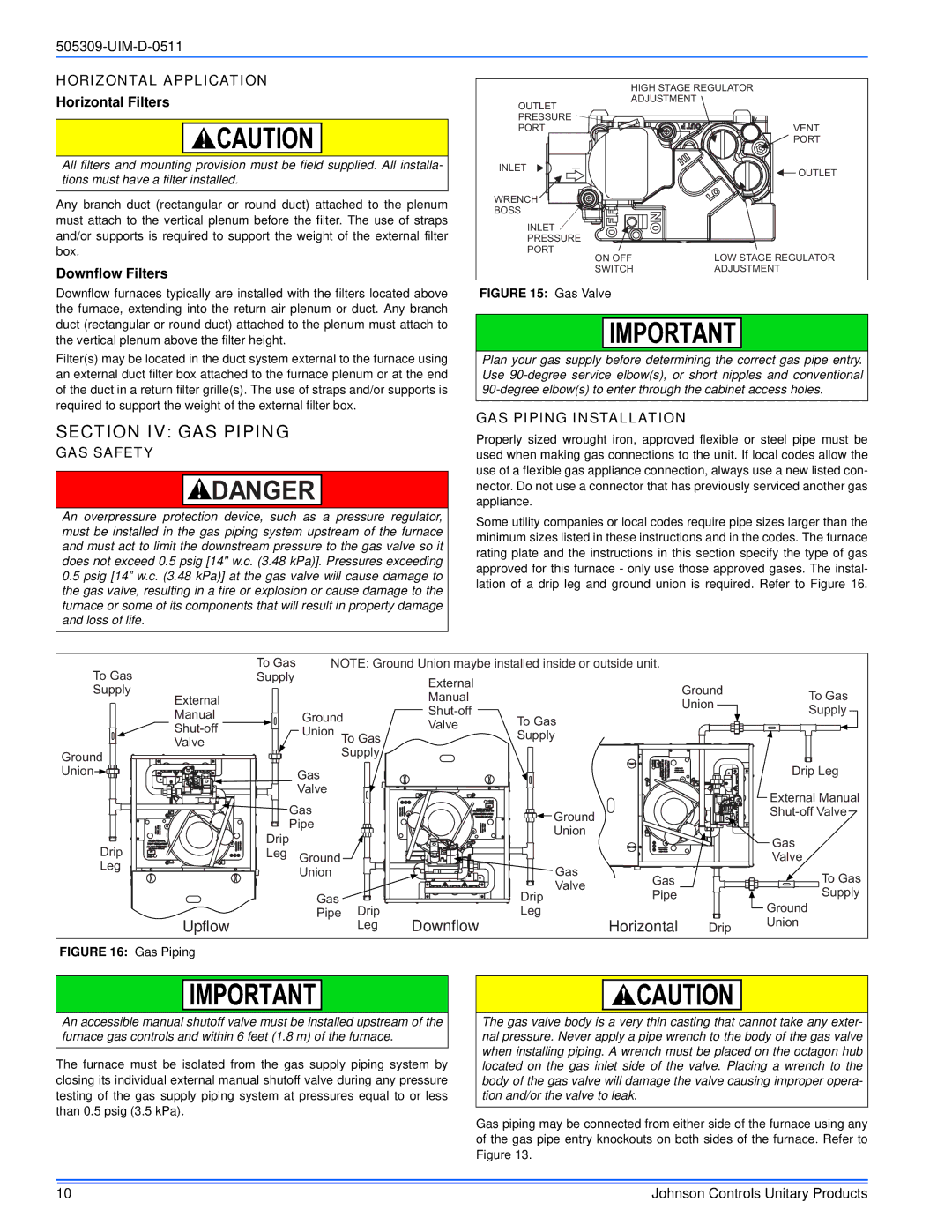TM9T*MP specifications
Johnson Controls TM9T*MP is a state-of-the-art HVAC unit designed for modern commercial and residential applications. With its innovative technology and robust features, the TM9T*MP offers exceptional performance, efficiency, and reliability. This unit is engineered to provide optimal climate control, ensuring that indoor environments remain comfortable regardless of external weather conditions.One of the main features of the TM9T*MP is its variable-speed compressor, which allows for precise temperature regulation and energy-efficient operation. This technology enables the unit to adjust its output based on the current demand, significantly reducing energy consumption compared to traditional systems. By operating at lower speeds during mild weather, the TM9T*MP minimizes energy costs while maintaining user comfort.
Another significant aspect of the TM9T*MP is its advanced multi-stage filtration system. This system includes a high-efficiency air filter capable of capturing a wide range of airborne particles, including dust, pollen, and allergens. This feature not only improves indoor air quality but also helps to promote a healthier living environment for occupants. Furthermore, the TM9T*MP is compatible with smart home technology, allowing users to monitor and control their HVAC system remotely through mobile devices or voice-controlled assistants.
The TM9T*MP also boasts a compact design, making it versatile for various installation environments. Its sleek profile allows for easy integration into existing spaces without requiring extensive modifications. Durability is another hallmark of this unit, as it is built with high-quality materials designed to withstand the rigors of daily use while providing long-lasting performance.
Additionally, the TM9T*MP incorporates advanced diagnostics and troubleshooting capabilities. This feature simplifies maintenance by alerting technicians to potential issues before they escalate, ensuring smooth operation and reducing downtime. Moreover, with a user-friendly interface, occupants can easily adjust settings, access energy usage data, and schedule maintenance reminders for peak performance.
In summary, Johnson Controls TM9T*MP sets a new standard in HVAC technology with its variable-speed compressor, multi-stage filtration, compact design, and smart capabilities. Committed to energy efficiency and indoor air quality, it promises to deliver comfort and sustainability in every setting.

